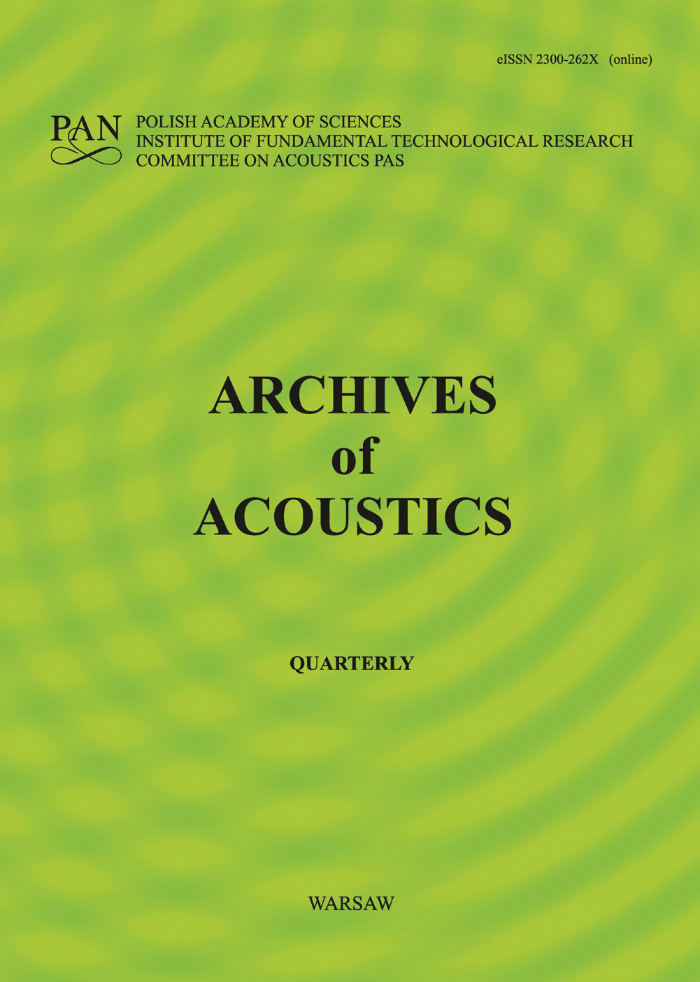Other articles by the same author(s)
- Marek PAWEŁCZYK, Active noise control - a review of control-related problems , Archives of Acoustics: Vol. 33 No. 4 (2008)
- Stanisław WRONA, Marek PAWEŁCZYK, Controllability-Oriented Placement of Actuators for Active Noise-Vibration Control of Rectangular Plates Using a Memetic Algorithm , Archives of Acoustics: Vol. 38 No. 4 (2013)
- Stanislaw WRONA, Krzysztof MAZUR, Jaroslaw RZEPECKI, Anna CHRAPOŃSKA, Marek PAWEŁCZYK, Sound Transmission Through a Thin Plate with Shaped Frequency Response , Archives of Acoustics: Vol. 44 No. 4 (2019)
- Krzysztof MAZUR, Marek PAWEŁCZYK, Internal Model Control for a Light-Weight Active Noise-Reducing Casing , Archives of Acoustics: Vol. 41 No. 2 (2016)
- Krzysztof MAZUR, Marek PAWEŁCZYK, Hammerstein Nonlinear Active Noise Control with the Filtered-Error LMS Algorithm , Archives of Acoustics: Vol. 38 No. 2 (2013)
- Krzysztof MAZUR, Stanisław WRONA, Anna CHRAPOŃSKA, Jarosław RZEPECKI, Marek PAWEŁCZYK, FXLMS with Multiple Error Switching for Active Noise-Cancelling Casings , Archives of Acoustics: Vol. 44 No. 4 (2019)
- Mariusz LATOS, Marek PAWEŁCZYK, Adaptive algorithms for enhancement of speech subject to a high-level noise , Archives of Acoustics: Vol. 35 No. 2 (2010)
- Krzysztof MAZUR, Marek PAWEŁCZYK, Active Noise Control with a Single Nonlinear Control Filter for a Vibrating Plate with Multiple Actuators , Archives of Acoustics: Vol. 38 No. 4 (2013)
- Anna CHRAPOŃSKA, Jarosław RZEPECKI, Krzysztof MAZUR, Stanisław WRONA, Marek PAWEŁCZYK, Influence of Double-Panel Structure Modification on Vibroacoustical Properties of a Rigid Device Casing , Archives of Acoustics: Vol. 45 No. 1 (2020)
- Krzysztof MAZUR, Marek PAWEŁCZYK, Active Noise-Vibration Control using the Filtered-Reference LMS Algorithm with Compensation of Vibrating Plate Temperature Variation , Archives of Acoustics: Vol. 36 No. 1 (2011)


